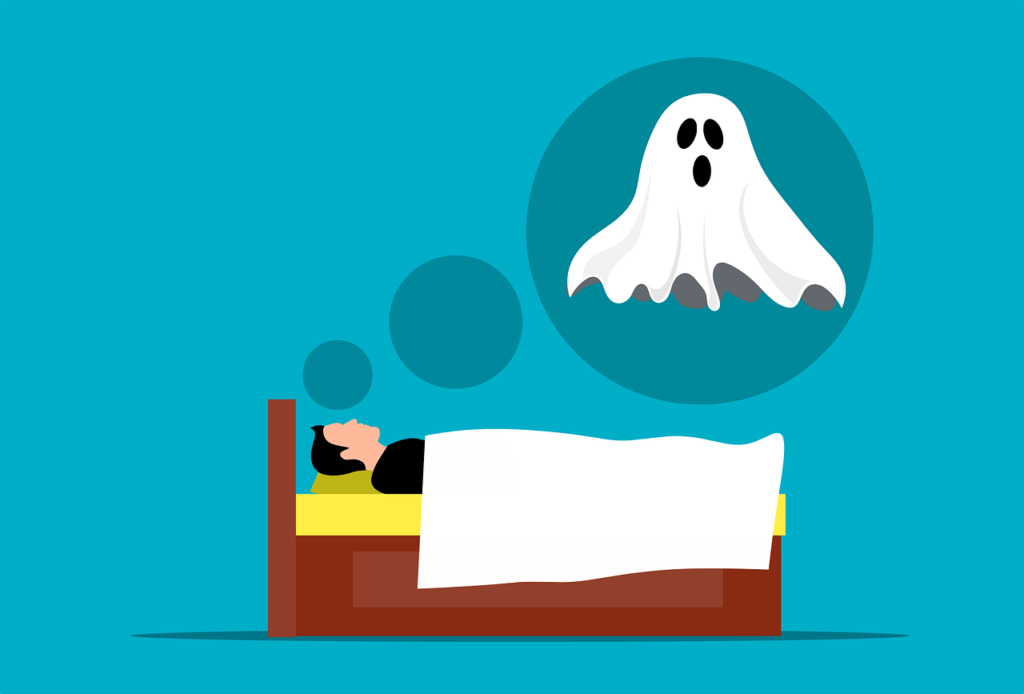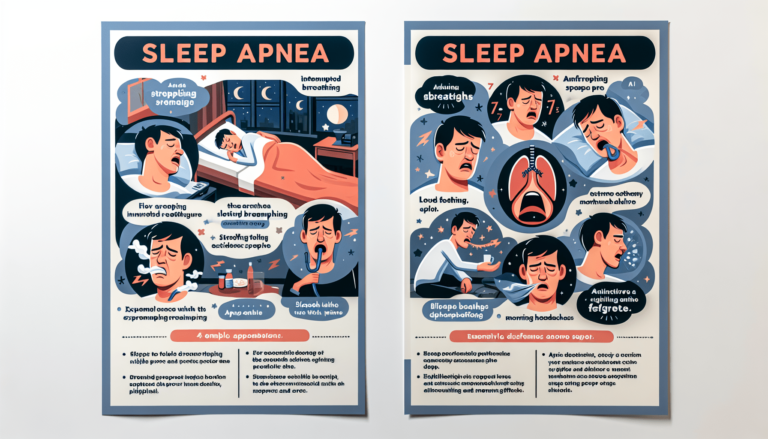Understanding Sleep Disorders: A Guide to Diagnosis and Treatment

Understanding Sleep Disorders: A Guide to Diagnosis and Treatment is a valuable resource for anyone struggling with sleep-related issues. In today’s fast-paced world, sleep disorders have become increasingly common, compromising our health and overall productivity. Disorders such as insomnia, sleep apnea, and others not only disrupt our sleep patterns but also pose serious risks to our well-being. At Vector Sleep Clinic, we understand the challenges that come with sleep disorders, and we are here to support you. Completing a sleep study is crucial in order to address these issues before they lead to more serious health problems like heart attacks, strokes, high blood pressure, and even car accidents. Our comprehensive approach to diagnosis and treatment ensures that you receive the care you need to achieve restful sleep once again. Visit Vector Sleep Clinic today and unlock the magic of rejuvenating nights where dreams meet wellness.
This image is property of pixabay.com.
Types of Sleep Disorders
Insomnia
Insomnia is a common sleep disorder characterized by difficulty falling asleep or staying asleep. It can be caused by stress, anxiety, or certain medications. Insomnia can have a significant impact on daily functioning and overall well-being.
Sleep Apnea
Sleep apnea is a serious sleep disorder in which breathing is repeatedly interrupted during sleep. This can lead to loud snoring, gasping, and choking sounds. Sleep apnea can have negative effects on both physical and mental health if left untreated.
Restless Leg Syndrome
Restless Leg Syndrome (RLS) is a condition characterized by an uncontrollable urge to move the legs, often accompanied by uncomfortable sensations such as tingling or crawling. RLS can disrupt sleep and cause significant discomfort.
Hypopnea
Hypopnea is a sleep disorder that involves shallow or slow breathing during sleep. It can lead to snoring and interrupted sleep. Frequent episodes of hypopnea can deprive the body of oxygen and increase the risk of health problems.
Narcolepsy
Narcolepsy is a neurological disorder that affects the brain’s ability to regulate sleep-wake cycles. It is characterized by excessive daytime sleepiness, sudden loss of muscle tone (cataplexy), and vivid dreaming while falling asleep or waking up.
Sleepwalking
Sleepwalking, also known as somnambulism, is a sleep disorder where a person gets up and walks around while still asleep. Sleepwalkers may perform complex activities without any recollection of their actions upon waking up.
Nightmares
Nightmares are vivid and disturbing dreams that cause fear or anxiety. They can disrupt sleep and lead to feelings of terror upon waking up. Chronic nightmares can interfere with sleep quality and overall well-being.
Sleep Paralysis
Sleep paralysis is a temporary inability to move or speak while falling asleep or waking up. It is often associated with hallucinations and a sense of pressure on the chest. Sleep paralysis can be a frightening experience.
Sleep Talking
Sleep talking, also known as somniloquy, is a sleep disorder where a person talks during sleep. It ranges from simple sounds to complete conversations. Sleep talking usually occurs during the lighter stages of sleep.
Sleep-related Eating Disorder
Sleep-related eating disorder is characterized by episodes of eating or drinking during sleep. This disorder can involve consuming unusual or harmful substances, and the individual may have no recollection of their actions upon waking up.
Effects of Untreated Sleep Disorders
Heart Attacks
Untreated sleep disorders can increase the risk of heart attacks. Sleep apnea, in particular, has been associated with high blood pressure, which can strain the heart and increase the risk of heart attacks.
Strokes
Sleep disorders, such as sleep apnea, can also increase the risk of strokes. Interruptions in breathing during sleep can lead to reduced oxygen levels and increased blood pressure, which are both risk factors for strokes.
High Blood Pressure
Many sleep disorders, including sleep apnea and insomnia, have been linked to high blood pressure. Chronic sleep disturbances can disrupt the body’s natural processes and contribute to the development of hypertension.
Car Accidents
Sleep disorders can impair cognitive function and reaction times, increasing the risk of car accidents. Conditions like narcolepsy or sleep deprivation can cause excessive daytime sleepiness, making it dangerous to drive.
Problems at Home or Work
Sleep disorders can negatively impact relationships and performance at home or work. Chronic sleep deprivation can lead to irritability, mood swings, difficulty concentrating, and decreased productivity.
Sexual Dysfunction
Sleep disorders, especially those that disrupt sleep continuity, can contribute to sexual dysfunction. Sleep apnea, for example, has been linked to erectile dysfunction and decreased libido in men.
Obesity
Obesity and sleep disorders often go hand in hand. Lack of sleep can affect the body’s ability to regulate hunger and satiety hormones, leading to increased cravings and overeating. Additionally, sleep deprivation can adversely affect metabolism.
Mental Health Issues
Sleep disorders can contribute to the development or exacerbation of mental health issues such as depression and anxiety. Disrupted sleep can disrupt the balance of chemicals in the brain and impact overall mental well-being.
Importance of a Sleep Study
A sleep study, also known as a polysomnography, is a diagnostic tool used to evaluate and diagnose sleep disorders. It is a non-invasive procedure that involves monitoring various physiological parameters during sleep, such as brain waves, eye movements, muscle activity, and breathing patterns.
A sleep study can provide valuable information about the quality and quantity of your sleep, helping to identify any underlying sleep disorders. It can also assess the severity of a sleep disorder and guide appropriate treatment options.
It is important to undergo a sleep study if you suspect you have a sleep disorder. A proper diagnosis can ensure that you receive the necessary treatment and management strategies to improve your sleep and overall health.
Benefits of Diagnosing a Sleep Disorder
Proper Treatment and Management
Diagnosing a sleep disorder allows for targeted treatment and management strategies. With a proper diagnosis, healthcare professionals can develop a personalized treatment plan that may include medications, therapy, lifestyle modifications, or other interventions.
Improved Quality of Life
Adequate and restful sleep is vital for overall well-being and quality of life. Diagnosing and treating a sleep disorder can lead to improved sleep quality, reduced daytime sleepiness, increased energy levels, and enhanced cognitive functioning.
Reduced Health Risks
Untreated sleep disorders can have serious health consequences. By diagnosing and treating a sleep disorder, the associated health risks can be minimized. This includes reducing the risk of heart disease, strokes, high blood pressure, and other chronic health conditions.
Better Sleep Efficiency
Diagnosing a sleep disorder can help optimize sleep efficiency. With the appropriate treatment and management strategies, individuals can experience more restful and uninterrupted sleep, leading to improved physical and mental well-being.
This image is property of pixabay.com.
What to Expect During a Sleep Study
Initial Consultation
To initiate the process of a sleep study, you will typically have an initial consultation with a sleep specialist. During this consultation, you can discuss your sleep concerns, medical history, and any symptoms you may be experiencing.
Preparation for the Study
Before the sleep study, you may be given specific instructions to follow, such as avoiding caffeine or napping on the day of the study. Additionally, you may need to pack an overnight bag with comfortable sleepwear and personal items.
Overnight Monitoring
During the sleep study, electrodes and sensors will be attached to your body to monitor various physiological parameters. This may include sensors on your scalp, face, chest, and legs to measure brain waves, eye movements, muscle activity, and breathing patterns.
Analysis of Data
The data collected during the sleep study will be analyzed by qualified sleep technologists and interpreted by a sleep specialist. They will assess the quality and quantity of your sleep, identify any abnormalities, and make a diagnosis if necessary.
Discussion of Findings and Treatment Options
Once the sleep study results are available, you will have a follow-up appointment with the sleep specialist. They will discuss the findings, provide a diagnosis if applicable, and recommend appropriate treatment options based on your individual needs.
Treatment Options for Sleep Disorders
CPAP Therapy
Continuous Positive Airway Pressure (CPAP) therapy is a common treatment for sleep apnea. It involves wearing a mask over the nose or mouth during sleep, which delivers a constant stream of air to keep the airway open.
Oral Appliances
Oral appliances, such as mandibular advancement devices, can be used to treat sleep apnea and snoring. These devices help to reposition the jaw and tongue to keep the airway open during sleep.
Surgical Interventions
Surgery may be recommended for certain sleep disorders, particularly when anatomical abnormalities are causing the sleep disturbance. Surgical interventions can aim to remove obstructions or correct structural issues that contribute to sleep disorders.
Behavioral Therapy
Behavioral therapy, such as cognitive-behavioral therapy for insomnia (CBT-I), can be effective in treating sleep disorders. It involves identifying and changing behaviors or thoughts that contribute to sleep difficulties and promoting healthy sleep habits.
Medications
In some cases, medications may be prescribed to manage sleep disorders. These can include sedatives or hypnotics to promote sleep or medications that address specific symptoms or underlying conditions.
Lifestyle Modifications
Adopting healthy sleep habits and lifestyle modifications can greatly improve sleep quality. This can include practicing good sleep hygiene, maintaining a regular sleep schedule, and creating a sleep-conducive environment.
This image is property of pixabay.com.
Choosing the Right Sleep Specialist
Qualifications and Credentials
When choosing a sleep specialist, it is important to ensure that they have the necessary qualifications and credentials. Look for certifications in sleep medicine and memberships in professional organizations.
Experience and Expertise
Consider the sleep specialist’s experience and expertise in diagnosing and treating sleep disorders. Ask about their specific areas of interest and the number of patients they have successfully treated.
Patient Reviews and Testimonials
Reading patient reviews and testimonials can provide valuable insights into the quality of care provided by a sleep specialist. Look for positive feedback regarding communication, professionalism, and successful treatment outcomes.
Communication and Bedside Manner
Effective communication and a compassionate bedside manner are essential qualities in a sleep specialist. A good sleep specialist should listen to your concerns, explain procedures and treatment options clearly, and make you feel comfortable throughout the process.
Availability and Accessibility
Consider the availability and accessibility of the sleep specialist. Are they able to accommodate your schedule and provide ongoing support as needed? It is important to have a healthcare provider who is responsive and available for any questions or concerns.
Insurance Coverage
Check if the sleep specialist accepts your insurance plan. Understanding the coverage and potential out-of-pocket expenses can help you make an informed decision.
Managing Sleep Disorders at Home
Establishing a Bedtime Routine
Creating a consistent bedtime routine can signal to your body that it’s time to wind down and prepare for sleep. This can include activities such as reading a book, taking a warm bath, or practicing relaxation techniques.
Creating a Comfortable Sleep Environment
Ensure that your sleep environment is conducive to restful sleep. This can involve keeping the room cool, dark, and quiet, using comfortable bedding and pillows, and minimizing distractions such as electronics or excessive noise.
Stress Reduction Techniques
Stress and anxiety can contribute to sleep disorders. Incorporating stress reduction techniques into your daily routine, such as meditation, deep breathing exercises, or journaling, can help promote relaxation and better sleep.
Healthy Sleep Habits
Practicing good sleep hygiene is essential for managing sleep disorders. This includes maintaining a regular sleep schedule, avoiding stimulating activities close to bedtime, and avoiding daytime napping.
Proper Nutrition and Exercise
Eating a healthy diet and engaging in regular exercise can positively impact sleep. Avoid heavy meals close to bedtime, limit caffeine and alcohol intake, and aim for regular physical activity during the day.
Avoidance of Stimulants and Electronics
Stimulants such as caffeine and nicotine can interfere with sleep. It is best to avoid these substances close to bedtime. Additionally, the blue light emitted by electronic devices can disrupt the body’s natural sleep-wake cycle, so it is advisable to limit exposure before bed.
Supportive Resources for Sleep Disorders
Support Groups
Joining a support group for individuals with sleep disorders can provide a sense of community and understanding. Sharing experiences and tips for managing sleep disorders can be beneficial for emotional support and finding practical solutions.
Online Communities
Online communities, forums, and social media platforms can connect individuals with sleep disorders from around the world. These platforms offer an opportunity to share experiences, ask questions, and learn from others who are going through similar challenges.
Educational Websites
There are numerous reputable websites dedicated to providing information and resources on sleep disorders. These websites often offer educational articles, self-assessment tools, and tips for managing sleep disorders.
Books and Literature
There is a wide range of books and literature available on sleep disorders and sleep health. These resources can provide in-depth knowledge, practical tips, and personal stories of individuals who have overcome sleep disorders.
Wellness Apps
There are various smartphone applications designed to promote better sleep and manage sleep disorders. These apps may offer features such as sleep tracking, relaxation exercises, and guided meditations to aid in the management of sleep disorders.
In conclusion, understanding and addressing sleep disorders is crucial for overall health and well-being. By recognizing the types and effects of sleep disorders, considering the benefits of a sleep study, exploring treatment options, choosing the right sleep specialist, implementing management strategies at home, and utilizing supportive resources, individuals can take proactive steps towards achieving restful and rejuvenating sleep. Remember, a good night’s sleep is within reach with proper diagnosis and comprehensive care. The team at Vector Sleep Clinic is dedicated to helping you unlock the power of uninterrupted sleep.









